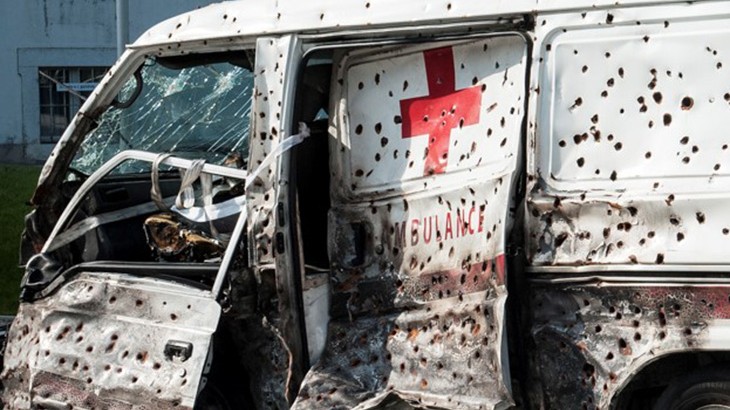Humanitarian aid workers and their protection under international law

Humanitarian aid, by definition, is provided in complex and insecure settings. Therefore humanitarian workers, including health-care personnel, often face tremendous risks to provide assistance and care to people in need. Are they protected under International Law? To what extent? And what steps can aid agencies and workers themselves take to increase this protection.
In this podcast, hosted by Advanced Training Program in Humanitarian Action (ATHA), the Health Care in Danger project contributed to the panel discussion on "The Protection of Humanitarian Aid Workers Under International Law" - bringing in the experience of the ICRC and the efforts a four year long project dedicated to improving access to and delivery of health care in insecure settings.
Key questions discussed in the podcast include:
- How does the law currently protect humanitarian professionals in insecure settings, and what gaps exist with regard to these legal protections?
- What are the consequences of protection disparities between humanitarian professionals, particularly national or local staff?
- What legal developments are feasible to improve the protection of humanitarian actors in insecure settings and to further accountability efforts for attacks against aid workers?
The panel of experts

Benjamin Charlier
Operations Advisor, Health Care in Danger Project
International Committee of the Red Cross
Twitter: @HCIDproject

Pauline Chetcuti
Humanitarian Advocacy Manager
Action Contre la Faim
Twitter: @ChetcutiPauline

Michaël Neuman
Director of Studies, MSF-Crash
(Centre de réflexion sur l'action et les savoirs humanitaires)
Twitter: @mikafromparis / @msf_crash

Marco Sassòli
Director of the Department of Public International Law and International Organization
University of Geneva, Switzerland
Keen to know more?
- Listen to the podcast
- Learn more about the protection of health care workers in conflict
- Follow @HCIDproject and join your voice to #protecthealthcare
- Stay informed about initiatives to protect healthcare
